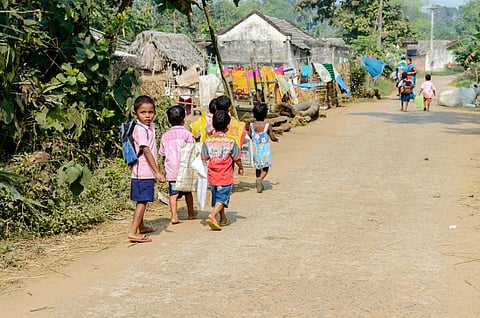

Slow progress on achieving the target of education for all set by the United Nations (UN), coupled with socio-economic pressures in many parts of the world, has widened the global educational gap in the last two years, according to UNESCO.
There are now 250 million children not enrolled in school, up by six million since 2021, according to a new report by the orgnanisation.
“This increase is partly due to the mass exclusion of girls and young women from education in Afghanistan but also of slow progress across the world,” the authors of the report published September 18, 2023 said.
Ensuring quality education for all is the fourth of the UN-mandated Sustainable Development Goals. A new child has to join school every two seconds from now to achieve the 2030 targets of this goal.
This progress has to be supported by “58 million additional children, adolescents, and youth in school, and at least 1.7 million more primary school teachers trained to provide quality education”, to attain SDG 4, UNESCO noted.
“These commitments must now be reflected in acts. There is no more time to lose,” said UNESCO Director-General Audrey Azoulay.
The UN organisation also analysed the progress on commitments made by 141 countries to upgrade their education systems to help meet SDG 4, a year ago at the UN Education Transformation Summit.
They found that:
“1.4 million children must be enrolled in preschool every year until 2030 and primary completion rates must be almost tripled,” noted the report.
The education completion rate is measured to calculate progress on global indicator 4.1.2 of SGD 4. An analysis of this parameter across countries revealed that completion rate for primary education increased to around 87 per cent in 2021 from 85 per cent in 2015. For secondary education, the rate grew by five percentage points, going from 53 per cent to 58 per cent during the study period.
Sub-Saharan Africa remained well below the global average by more than 20 percentage points in primary education (64 per cent) and in upper secondary education (27 per cent), according to the report.
The COVID-19 pandemic, which caused to major economic disruptions and break in education globally, led to a 10 per cent drop in adult participation in formal and non-formal education in 57 mainly high-income countries, the report.
In the 31 low- and lower-middle-income countries that measure learning progress at the end of primary school, Vietnam is the only country where a majority of the children achieved minimum proficiency in both reading and mathematics, the findings showed.
UNESCO called for urgent action for achieving SDG 4 to protect the future of millions of children across the world.